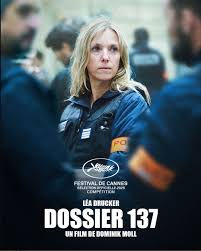The Phoenician Scheme
- Tommaso Vanni
- 24 mag 2025
- Tempo di lettura: 2 min
Aggiornamento: 25 mag 2025

The latest assassination attempt on Zsa-Zsa Korda (Benicio Del Toro), also known as Mr. 5%, one of the richest men in 1950s Europe, opens Wes Anderson’s newest film, The Phoenician Scheme. His enemies' persistence in trying to kill him compels him to summon his only daughter, Liesl (Mia Threapleton), a would-be nun, to name her his sole heir and initiate her into the family business.
The film's central theme is the evolving father-daughter relationship, which develops as the two embark on a journey to salvage Zsa-Zsa’s final, most ambitious project. As Liesl spends time with her only living parent, she begins to uncover the truth behind her mother’s mysterious death. Their misadventures are shadowed by the clumsy tutor Bjorn (Michael Cera), who gradually emerges as the film’s third key character.
The mise-en-scène is packed with all the signature elements of a Wes Anderson film. After the “American interlude” of Asteroid City (2023), Anderson returns to his fascination with whimsical European settings, previously explored in The Grand Budapest Hotel (2014) and The French Dispatch (2021). Although the story is set two decades after The Grand Budapest Hotel, the two films share several elements, including a critique of rising political currents. While the 2014 film depicted Europe on the brink of fascism, The Phoenician Scheme explores neo-colonial dynamics and offers a pointed critique of oligarchic figures, Zsa-Zsa himself included.
Anderson’s hallmark approach to character is once again on display: every detail is treated with subtle irony and detachment, with an emphasis on eccentric, quirky traits. Compared to Asteroid City and The French Dispatch, this film places greater focus on storytelling, making the stylistic elements, while still prominent, slightly less dominant. However, the narrative ultimately feels repetitive and fails to fully engage.
The concept behind the film is highly compelling: to tell a story inspired by Calouste Sarkis Gulbenkian, a real-life Armenian businessman (also known as the original "Mr. 5%") who was involved in mysterious oil dealings in newly established Middle Eastern states. Unfortunately, the final product struggles to go beyond immaculate wardrobes and stunning Andersonian visuals. Nevertheless, it represents a step in the right direction, toward a film with more narrative depth.
By Tommaso Vanni




Commenti